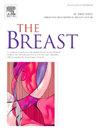Effect of AI-based pre-hospital health education via QR code on APAIS scores in patients with breast nodules: A retrospective study
IF 5.7
2区 医学
Q1 OBSTETRICS & GYNECOLOGY
引用次数: 0
Abstract
Purpose
To explore the effect of AI-based pre-hospital health education via QR code on preoperative anxiety and information needs in patients with breast nodules and provide a decision-making reference for ongoing optimizing clinical workflows.
Methods
This retrospective study analyzed the clinical data of 718 breast nodule patients from January to December 2024. Patients were sequentially divided into a non-viewed group (receiving routine health education) and a viewed group (receiving AI-based pre-hospital health education) to compare Amsterdam Preoperative Anxiety and Information Scale (APAIS) scores between the two groups. Univariate analysis and multivariate regression were used to examine factors influencing preoperative anxiety and information needs in patients with breast nodules.
Results
718 patients were included, with 367 in the non-viewed group and 351 in the viewed group. Patients in the viewed group reported higher satisfaction scores and had shorter hospital stay compared to those in the non-viewed group. The multiple linear regression analysis revealed a significant negative correlation between the viewed group and preoperative anxiety (β = −5.31, 95 % CI: −6.03, −4.59; P = 0.001) and information needs (β = −1.40, 95 % CI: −1.63, −1.18; P = 0.001). Additionally, patient satisfaction also influences their preoperative anxiety and information needs (P < 0.001).
Conclusion
AI-based pre-hospital health education can help reduce patients with breast nodules' preoperative anxiety and information needs, as well as increase their satisfaction and shorten hospital stay. AI-based pre-hospital health education via QR code can be applied in clinical practice.
基于人工智能的院前二维码健康教育对乳腺结节患者APAIS评分影响的回顾性研究
目的探讨基于人工智能的院前二维码健康教育对乳腺结节患者术前焦虑和信息需求的影响,为持续优化临床工作流程提供决策参考。方法回顾性分析2024年1 - 12月718例乳腺结节患者的临床资料。将患者依次分为未观察组(接受常规健康教育)和观察组(接受基于人工智能的院前健康教育),比较两组患者的阿姆斯特丹术前焦虑和信息量表(APAIS)得分。采用单因素分析和多因素回归分析探讨影响乳腺结节患者术前焦虑和信息需求的因素。结果共纳入718例患者,其中未观察组367例,观察组351例。与未观察组相比,观察组的患者报告了更高的满意度得分,住院时间也更短。多元线性回归分析显示,观察组与术前焦虑呈显著负相关(β = - 5.31, 95% CI: - 6.03, - 4.59;P = 0.001)和信息需求(β=−1.40,95%置信区间CI:−1.63−1.18;p = 0.001)。此外,患者满意度也会影响术前焦虑和信息需求(P <;0.001)。结论基于人工智能的院前健康教育有助于降低乳腺结节患者术前焦虑和信息需求,提高患者满意度,缩短住院时间。基于人工智能的院前二维码健康教育可应用于临床。
本文章由计算机程序翻译,如有差异,请以英文原文为准。
求助全文
约1分钟内获得全文
求助全文
来源期刊

Breast
医学-妇产科学
CiteScore
8.70
自引率
2.60%
发文量
165
审稿时长
59 days
期刊介绍:
The Breast is an international, multidisciplinary journal for researchers and clinicians, which focuses on translational and clinical research for the advancement of breast cancer prevention, diagnosis and treatment of all stages.
 求助内容:
求助内容: 应助结果提醒方式:
应助结果提醒方式:


